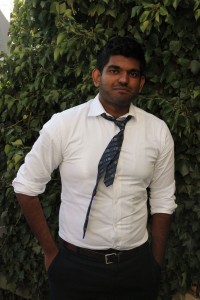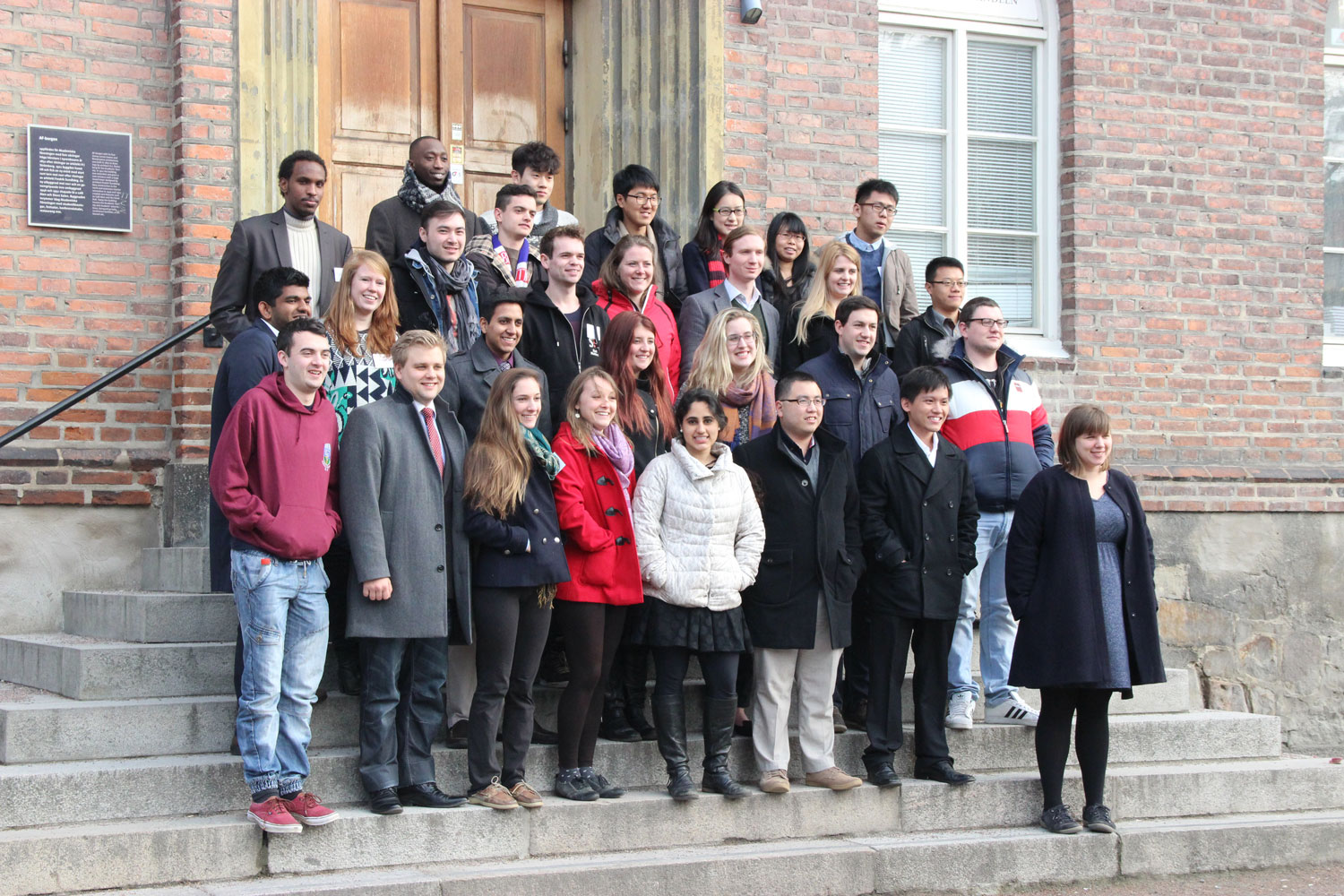Lund University has during the last days hosted the reborn U21 Student Leader’s Network. The aim is to introduce more educational coverage and transparency within the international student cooperation.

For several years now, the University has been a member of a network of universities called Universitas 21, U21. The coverage within the network will be consolidated. With the help of Vice-Chancellor Per Eriksson the Lund University Student Union, Lus, has started Universitas 21 Student Leader’s Network. The student union cooperation is going to be a co-worker to the rest of U21. The idea of a student union network was presented during a U21 meeting in Vancouver last year.
“We have a strong tradition of student influence in Sweden,” says Tora Törnquist, former chairperson of Lus and one of those who has worked to establish the Student Leader’s Network.
“The problem with U21 is that it requires resources and also that it’s not very transparent. The cooperation has been very abstract and that is why we want transparency with more student representatives,” she continues.
The first meeting
The aim with the first meeting was to decide the future actions of the Student Leader’s Network and how its earlier fate should be avoided. That’s why future meetings will be held on a regular basis both physically at least once a year and virtually several times a year.
“The meeting has worked well. We have established an initial structure, that is going to be responsible for the meeting next year and what the intention should be with the network,” says Tora Törnquist.
“There was a similar student network about a decade ago. However, it is not the same network we are establishing now, we start from the beginning,” she says.
Resource demanding Universitas 21
Universitas 21 has been around since 1997 and is a worldwide cooperation between 27 research-strong universities. The intention of the cooperation is to make the Vice-Chancellors and others in management positions at the universities exchange experiences. The aim is to promote an international approach and to have an interchange between personnel and students at the different universities.
The Student Leader’s Network shall not only have an investigative function but also act as a forum for an exchange between different student organizations. It becomes natural as it is unions from different countries that will cooperate. “We are student unions that can benefit a lot from each others’ different experiences. For instance how the student union can get more time with its University Board,” says Tora Törnquist.
FOUR VOICES FROM THE MEETING

Photo: Carl-Johan Kullving
“The conference is very interesting because there are so many students from different universities and countries here,” says Seongryul Jo, former chairman of the Korean University Buddy Assistants. “It is very different here compared to Korea. The discussions are more open and more effective – in Korea it can be much more feelings and hierarchies involved. What I bring back to Korea is a more effective meeting culture,” he says.

“I had no immediate expectation when I came here as this is our first meeting. It is confusing and exciting at the same time to be able to start a new project like this,” says Sharangan Maheswaran, chairman for one of the Student’s Councils at the University of New South Wales. ”Initially, the U21-cooperation wanted us to find better ways to promote the programs. We have the idea that if the universities are better focused on service for students the marketing will show up automatically. If the universities make it more simple for the students to visit the different universities and improve the cooperation between them – like for instance the EU – with better translations of the grades, the students will then promote the universities in a better way.” What do you bring back home?
“What we can learn from you here in Lund is the student unions’ organizational structures. You have a stronger student commitment and a better relation between the student union than we sometimes have. I hope we can become as successful as you are in this field,” he says.

Photo: Carl-Johan Kullving
“It is very exciting to be here. With this cooperation the universities can really create the global classroom. After attending this conference I know how we are going to be better at handling the educational coverage within the U21-cooperation,” says Meenu Singh, vice chairperson of Academic Affairs at the University of Maryland.
What is the most important issue you are going to bring back to your home university?
“I’m going to ask the administrators to be more involved and active to promote the exchange programs within U21. Then we have to ensure that the programs become more suited for today’s students,” she says.

“I didn’t know what to expect of the conference, and came here very open for new impressions. After our first meeting it will be interesting to see what’s going to happen,” says Nina Douwen, secretary at the Student Union at Amsterdam University.
“We haven’t yet decided upon any long term goals. It is interesting that we student representatives have so incredibly different rights at our different universities. I have learnt a lot about people’s different experiences,” she says.
“I am impressed of how Lund University interacts with the Faculty Boards and Vice-Chancellors. In Amsterdam we are allowed to speak up, but the University’s opinion is that we always have the same opinion as they. Here it seems like the University listens to the students opinions more seriously,” she says.
Text: Carl-Johan Kullving and Jonas Wegestål
Translation: Lars Jansson






